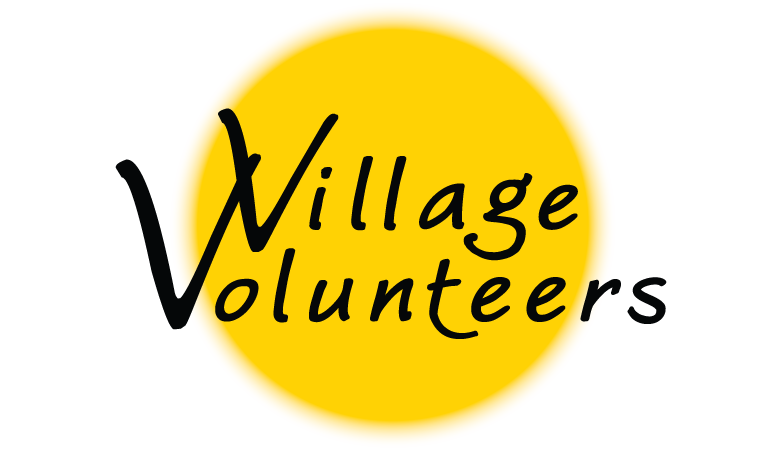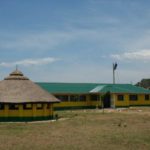Kenya: Mama Maria Kenya Hospital and Clinic
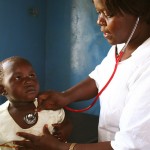 Mama Maria Hospital and Clinic provides health care to under-served communities in Kenya through an essential package of health services. Mama Maria is dedicated to providing opportunities to all who are in need. Medical professionals and medical students have an extraordinary opportunity to work at this wonderful health care facility. Click here to read the experience of one of our volunteers and click here to learn more about hope at Muhur Bay.
Mama Maria Hospital and Clinic provides health care to under-served communities in Kenya through an essential package of health services. Mama Maria is dedicated to providing opportunities to all who are in need. Medical professionals and medical students have an extraordinary opportunity to work at this wonderful health care facility. Click here to read the experience of one of our volunteers and click here to learn more about hope at Muhur Bay.
We love helping volunteers find their perfect placement. Fill out our Interest Form to get started!
Explore more programs in Kenya, Ghana, India, and Nepal.
PROGRAM OVERVIEW
Mama Maria is an indigenous, community-centric organization that provides low-cost health care services to aid the disadvantaged people of rural Kenya with 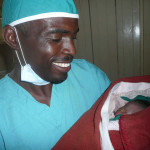 accessible and sustainable healthcare. Mama Maria offers volunteers the opportunity to work in the flagship clinic and hospital in Muhuru Bay.
accessible and sustainable healthcare. Mama Maria offers volunteers the opportunity to work in the flagship clinic and hospital in Muhuru Bay.
Mama Maria focuses on providing primary preventive measures through routine health maintenance, public health awareness programs in tandem with cure and/or management of disease and illness.
Mama Maria Hospital and Clinic is run by locally trained professionals with a keen understanding of the healthcare challenges and needs each community faces. They provide Basic Ambulatory and Short-Term inpatient Care; Maternal /Perinatal services; Pediatric care and childhood immunizations; assistance to Sickle Cell Anemia children and their families.
They provide service to all people, regardless of tribe, station, clan, religion, gender or health status. This includes a fundamental philosophy dedicated to building a diverse workforce in all the communities we serve and to provide patients with fair, affordable, and quality healthcare, using systems built on operational excellence.
Watch Peter Kithene’s story
The Primary Care program focuses on screening for and management of treatable childhood and adult diseases such as malaria, cholera, diarrheal diseases, Schistosomiasis (Bilharzia), and meningitis, as well as treating accidental injury, burns, and more. They also offer a vaccination schedule for both children and adults to eliminate preventable diseases. Mama Maria Hospital and Clinic also has a groundbreaking Sickle Cell Anemia program.
The focus is on the identification of patients with specific disease risk factors and they offer early intervention and preventive measures wherever possible. They encourage routine health maintenance and provide health education in partnership with patients for a healthy life.
Their Approach
- Leveraging outreach programs and off-site clinics to reach the unreachable
- Providing affordable and reliable, high-quality care
- Focusing on unique area health concerns through regional and cultural specific clinics
- Educating communities in hygiene and water treatment programs for prevention of disease
- Work in community health clinic
- Provide pediatric care and childhood immunizations
- Conduct HIV/AIDS testing, treatment, and care
Maternal and Child Health
We believe every child deserves an optimal entry into the world. We, therefore, work to ensure the health of each
pregnant mother and child by offering support from the prenatal to beyond birth. We focus on family planning, nutritional supplementation, pregnancy monitoring, perinatal classes, HIV mother-to-child prevention, and labor and delivery services. Beyond delivery, we provide continued well-baby checks, subsequent check-ups, immunization services, as well as nutritional monitoring for mother and child.
Our goal is to dramatically improve chances for a healthy pregnancy, safe birth, and the disease-free survival of the infant.
Their Approach
- A hands-on approach to ensuring a healthy pregnancy and birth
- They offer testing, perinatal classes, and care, delivery services, neonatal care and support
- Provide prevention from the spread of HIV to the baby through mother-to-child transmission prevention
- Provide childhood vaccination, nutritional support, and weight monitoring
- They offer the best chance for life by optimizing circumstances in-utero and postpartum care
HIV/AIDS
Although the prevalence and incidence of HIV/AIDS is still high in communities such as those they serve, its spread, morbidity, and mortality can be greatly reduced with appropriate care. MMC offers education, preventative precautions, screening, testing, and ultimately, early therapy. At Mama Maria Hospital they strive for health maintenance in the population by testing, encouraging adherence to therapy, counseling, and support for patients. Public Health students can work in educating the community with an appropriate curriculum that can be provided on mode and spread of infection and preventative techniques and measure.
Their approach
- Comprehensive care with screening, testing, and diagnosis of HIV
- Early treatment with antiretrovirals
- Education on transmission and preventative measures, as well as the importance of early testing
- They focus on therapy adherence and follow-up to improve outcomes
Public Health Awareness and Information
Mama Maria Hospital and Clinic’s goal is to reduce prevalence, mortality and morbidity of disease and to empower the population through education and awareness, enabling them to take ownership of their own health. They offer outreach, health and education fairs, classes, screening and vaccination drives. With a greater understanding of basic health, nutrition, hygiene, and sanitation, they believe rural populations can aid in the elimination of many communicable infections and diseases. Public health interns and students can work in educating on diseases endemic in Africa such as sickle cell anemia, HIV/AIDS, etc. Curriculum provided.
Capacity Building:
- Training and workshops in healthcare management, nutrition, and maternal care
- Leadership and entrepreneurial training
- Working in local schools is an option for volunteers who want to work with children in a classroom.
ACCOMMODATIONS AT MAMA MARIA
Volunteer Care- Accommodations
Housing
Volunteers are housed in one of 3 double-occupancy volunteer huts. Linens and mosquito nets are provided for each bed. Double occupancy huts.
Bathing
Provided on site in outhouse bathing houses.
Bathroom facilities
Outhouse bathroom
Drinking Water
Volunteers are provided with boiled and filtered water
Laundry
The hospitality staff will do your laundry unless a volunteer wants to do his/hers, in that case, the hospitality staff will avail laundry water etc but the staff loves to help. We ask that everyone wash their own undergarments.
Meals
Meals (except dinner) will be provided on site at the hospital compound. Dinner will be taken at the volunteer compound. Ugali a local staple made from corn and rice, chapatti served with vegetable, fish, meat. Also, mandazi (fried dough), bananas, mangoes. If you are a vegetarian, it will be noted on your information provided to the staff.
Electricity
There is electricity for charging batteries.
Technology
Phones will be available for volunteers to use and they would pay for minutes used
The Internet is available.
Medical Emergencies
The volunteer compound is a short distance from the hospital compound If transfer is needed they would go via private transportation. All are trained in CPR
Ethnicity
Luo
Population
150,000
Languages
Luo, English, Swahili
If there is need, interpreters are available for volunteers
ABOUT PROGRAM DIRECTOR: SILA NGURU 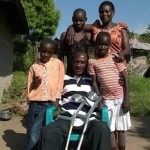
Reflections on his childhood and family.
Born in 1962, I was the 5th born in a family of 10; 5 boys and 5 girls. My father was a hard working shopkeeper merchant owning one of the biggest retail stores in Muhuru Bay. My mother traded in fish between Muhuru Bay and Migori. I went to primary school in Muhuru Bay and later transferred to a Nairobi High school for secondary education. As a child and until I was involved in an accident 1997 I played soccer.
The challenges Sila faced getting an education
I grew up in the 1970s when education in Kenya was a challenge. There were very few primary schools and even fewer secondary schools, mostly mission schools. We had to travel longer distances to access grade schools. Things have changed these days with schools being accessible in the communities. However, quality education still remains a challenge for the majority in rural areas.
What inspired Silas to do the work he is doing and how he got started
I learned at an earlier age the importance of serving the community. I helped my father sell at his shop and saw how people appreciated our services. My father was a successful businessman was always approached to loan people, sell goods on credit, or offer financial support whenever there was a need. I witnessed as a child what impact those services had to the less fortunate of the community. I learned a trade, volunteered in my community and supported in different aspects that would improve the livelihood of my community. In 1997, at the age of 35, while on a business trip I got in an accident and lost both of my legs. After spending months in a Nairobi hospital, far from home, I realized how precious life and family was. After regaining my health, I returned to my home village and continued serving the community; I volunteer in local school management committees, I’m an active member of my church and a Director of Mama Maria Hospital.
What obstacles Sila faces
I serve in one of the remotest parts of Kenya. The HIV/AIDS prevalence rate is high and the majority of the families live under a dollar per day. Many can only afford one meal per day. Provision of Healthcare becomes a challenge in a community like this. Also, given the remoteness, it’s hard to retain highly qualified medical staff. Forging a relationship with the outside world helps a lot!
What does Sila hope for the future of Mama Maria Hospital?
I hope to grow The Mama Maria Hospital to become the model village hospital in the region and beyond while remaining true to our mission to serve the less fortunate. My vision is to become an outstanding healthcare provider in the region with advanced diagnostics and highly competent and qualified staff. A village Hospital that would attract even the rich from the big town to seek care with us.
How has the partnership with Village Volunteers affect the work at the clinic?
Since our inception in 2005 Village Volunteers has played an important role. Sending volunteers to learn from and teach us new skills. Volunteers have given their precious time and donated their resources to support our efforts. We are truly grateful.
How the community benefits from having volunteers?
The community learns from the volunteers. Also, whenever we have volunteers our overhead costs are lowered hence making it much affordable to provide care to those in need. The volunteers get to help in the community outreach programs and
ABOUT THE FOUNDER OF MAMA MARIA HOSPITAL: PETER KITHENE
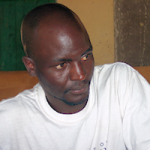
Childhood and Family
I was born in a loving family in rural Kenya. As a child, I witnessed a lot of suffering resulting from lack of healthcare. I lost six of my siblings from diseases that I believe were preventable and treatable if there was a reliable health clinic. I lost my parents at age 12, again from preventable causes. I vowed to pursue education and in turn to create a reliable healthcare solution for rural communities.
Challenges to getting an education
I loved being in grade school but I was discouraged by the fact that I didn’t know how I could pursue secondary education because of the financial burden. At that time secondary education in Kenya was extremely expensive, and more so to an orphaned child like me. However, I never gave up worked hard and earned a scholarship to Kenya’s premier high school, Starehe Boys Center in Nairobi, and later to the University of Washington, Seattle.
Hopes for Mama Maria Kenya
My goal is for Mama Maria to become a scalable and sustainable health care model across rural and low-income African communities
Our Partnership with Village Volunteers
Village Volunteers helps us with fundraising, project support and sending volunteers who donate their time and resource to advance our cause. Also, Village Volunteers helped with partnership opportunities. We thank them for that!
The ability for a closed and remote community like mine and many others to come into contact with people from other cultures, other regions, and other backgrounds is a eye opening and educational for the community.
Peter Kithene, an accomplished young man, went back to school finishing up his Masters in Public Health and is in medical school to do all he can for his community. Awarded a CNN World Hero Award, Peter Kithene has just begun making an impact.
